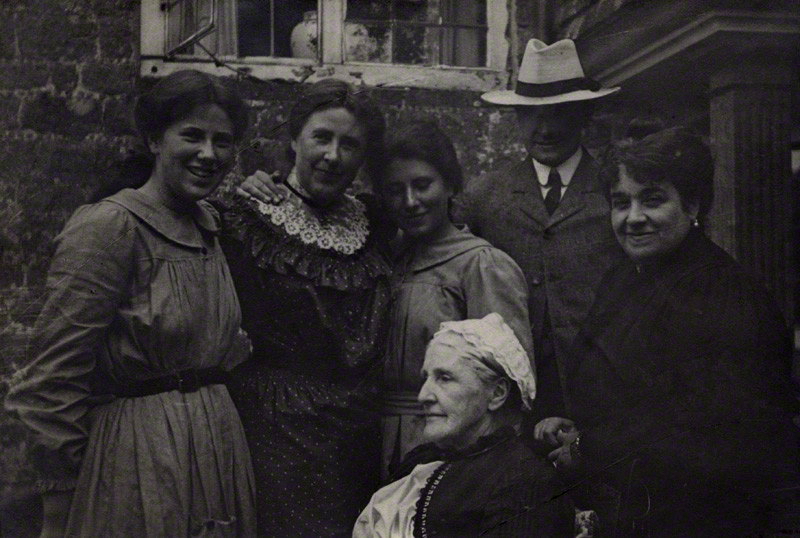Logan Pearsall Smith: Zitate auf Englisch
"Four Romantic Words" in Words and Idioms : Studies in the English Language (1925), § VI
Kontext: The truth is that the phenomena of artistic production are still so obscure, so baffling, we are still so far from an accurate scientific and psychological knowledge of their genesis or meaning, that we are forced to accept them as empirical facts; and empirical and non-explanatory names are the names that suit them best. The complete explanation of any fact is the very last step in human thought; and it is reached, as I have said, if indeed it is ever reached, by the preliminary processes of recognition, designation, and definition. It is with these preliminary processes that our aesthetic criticism is still occupied.
"Four Romantic Words" http://www.solcon.nl/arendsmilde/cslewis/reflections/e-frw-text.htm in Words and Idioms : Studies in the English Language (1925), § I.
Kontext: The emergence of a new term to describe a certain phenomenon, of a new adjective to designate a certain quality, is always of interest, both linguistically and from the point of view of the history of human thought. That history would be a much simpler matter (and language, too, a much more precise instrument) if new thoughts on their appearance, and new facts at their discovery, could at once be analysed and explained and named with scientific precision. But even in science this seldom happens; we find rather that a whole complex group of facts, like those for instance of gas or electricity, are at first somewhat vaguely noticed, and are given, more or less by chance, a name like that of gas, which is an arbitrary formation, or that of electricity, which is derived from the attractive power of electrum or amber when rubbed — the first electric phenomenon to be noticed.
“What music is more enchanting than the voices of young people, when you can't hear what they say?”
Age and Death
Afterthoughts (1931)
“Montaigne,” p. 2
Reperusals and Recollections (1936)
“English Aphorists,” p. 103
Reperusals and Recollections (1936)
“The test of a vocation is the love of the drudgery it involves.”
Art and Letters.
Afterthoughts (1931)
“Thank heavens, the sun has gone in, and I don't have to go out and enjoy it.”
"Last words" — these are not actually Smith's last words, but a section title).
All Trivia: Trivia, More Trivia, Afterthoughts, Last Words (1933)
“There are few sorrows, however poignant, in which a good income is of no avail.”
Life and Human Nature.
Afterthoughts (1931)
“English Aphorists,” p. 123
Reperusals and Recollections (1936)
recounting Desmond McCarthy’s description of Samuel Johnson, “English Aphorists,” p. 138
Reperusals and Recollections (1936)
“Montaigne,” p. 7
Reperusals and Recollections (1936)
“Fine Writing,” p. 306
Reperusals and Recollections (1936)
criticizing the Cambridge School of criticism, e.g. John Middleton Murry and Herbert Read, “Fine Writing,” pp. 306-307
Reperusals and Recollections (1936)
“Most people sell their souls, and live with a good conscience on the proceeds.”
Other People.
Afterthoughts (1931)
“Fine Writing,” p. 304
Reperusals and Recollections (1936)
“Fine Writing,” p. 308
Reperusals and Recollections (1936)
“It is the wretchedness of being rich that you have to live with rich people.”
In the World.
Afterthoughts (1931)
Life and Human Nature.
Afterthoughts (1931)
“Montaigne,” p. 6
Reperusals and Recollections (1936)
“English Aphorists,” p. 108
Reperusals and Recollections (1936)
